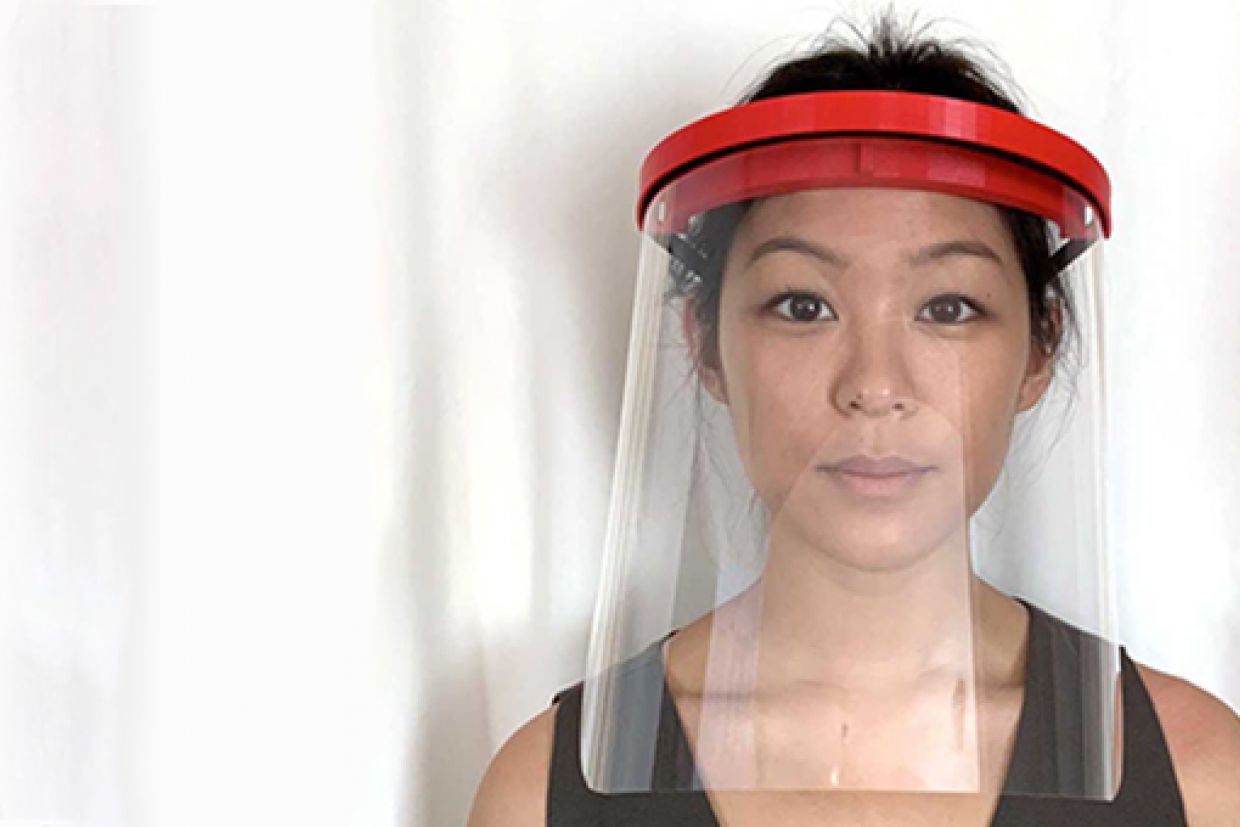Mitch Debora, Sc’14, Chris Labelle, BCom’14, and Derek Vogt, Sc’14, of Toronto-based Mosaic Manufacturing take pride in their ability to innovate.
They honed this skill at the Dunin-Deshpande Queen's Innovation Centre (DDQIC) summer incubator in 2014, when they founded their company, which makes accessories that enable 3D-printers to print in different materials and in different colours.
Amid the COVID-19 pandemic six years later, they’ve discovered a new way to innovate.
Inspired by individuals and companies using 3D printers to make respirator parts, Mosaic co-founder Mitch Debora said he and his team looked for ways to contribute to the nation-wide shortage of personal protective equipment (PPE).
To do this, Mosaic teamed up with three other companies, including Rockmass Technologies, based in Toronto, which makes data collection tools for the mining industry. Like Mosaic, Rockmass was founded by a member of the Queen’s alumni family, Shelby Yee, Sc’16.
The four companies decided to use their 3D printers to make face shields – plastic protective face gear that is worn over a masked face – for health-care workers across the country. Unlike traditional disposable face shields, these shields can be decontaminated and reused.
The companies applied for stimulus money from NGen Canada for Canadian small businesses stepping up to produce personal protective equipment. Once they were approved, their production goal jumped from the original 200 face shields to 45,000 by the end of June.
“What do you do when you need something critically and the lead time is four months?” says Mr. Debora. “You do it yourself.”
That’s where the innovation comes in. Mosaic and their partners are making those face shields while honouring the rules of physical distancing. “We are setting up factories in homes,” Mr. Debora explains. “A supply chain in Toronto has 21 locations and around five printers in each. That is 100 printers that will run 24/7.”
After they’re printed, the shields are sent to another manufacturer for assembly, sanitization, packaging, and shipping.
Mr. Debora considers this production arrangement a blueprint for any future need. “There is something bigger than what we are doing right now,” he says. “We are now responding, and it’s going to take us some time. But what about next time? Next time there is a playbook. We are demonstrating that next time we are set up.”


